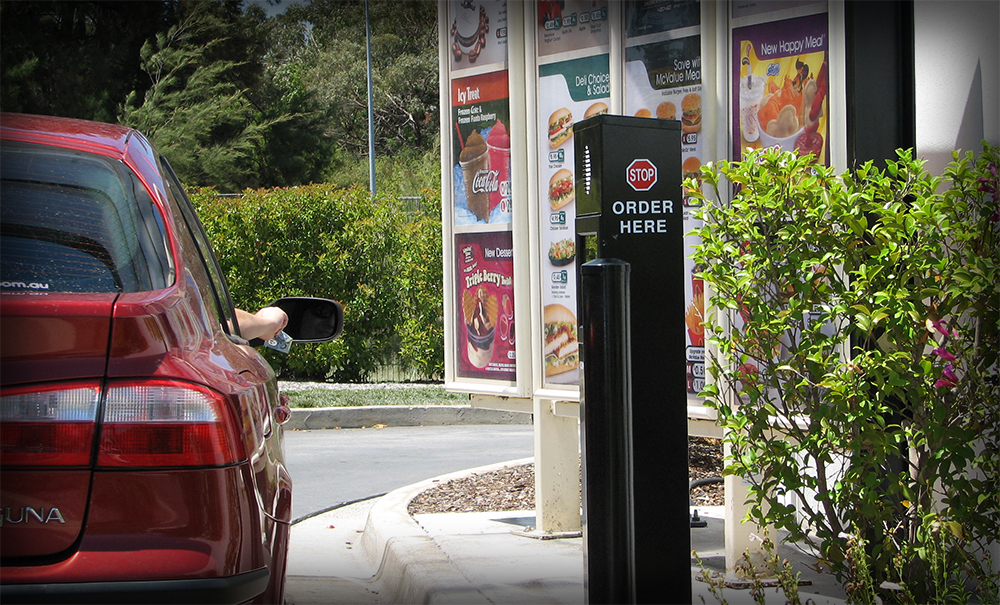Have you ever attended a “drive-thru” Mass? I knew of a priest who said Sunday Mass in about 20-30 minutes! The church was packed each week and everyone loved him.
[featured-image single_newwindow=”false”]Wikipedia[/featured-image]
However, is rushing through Mass ever a good thing? While it may allow us to “get on with our day” and not miss our dinner reservations on Saturday evening, it is a disservice both to the one who says it and the one who hears it.
Once again we find this topic in the pages of The Way of a Pilgrim. After attending the Divine Liturgy, the Pilgrim is impressed by the priest and praises him saying:
“‘How slowly and devoutly you say the Liturgy, Father!’ ‘Yes, but my parishioners don’t like it and grumble about it; yet nothing can be done, because I choose to think about every word of a prayer before I vocalize it. Prayer without interior feeling is not very effective either for the one who recites it or for the one who listens to it” (89, emphasis added).
Now before I go any further, the key in all of this is not just saying your prayers or Mass slowly. Just because someone says their prayers slowly does not mean they will attain the beatific vision. The key is in praying your prayers or Mass with the heart. Typically speaking, praying prayers slowly and deliberately facilitates this interior prayer and can raise a soul up to God.
I know from a personal experience that I am tempted to “rush” through my own prayers each day. It is very easy to open up the divine office and say the words quickly, without any thought at all. What we need to learn how to do is “imitate what you celebrate,” as Pope Francis charged new priests to do last year:
“When you celebrate the Mass, understand, therefore, what you do. Do not do it in haste! Imitate what you celebrate — it is not an artificial rite, an artificial ritual — so that, participating in the Mystery of the Lord’s death and Resurrection, you may bear the death of Christ in your members and walk with Him in the newness of life” (emphasis added).
Those are some beautiful words to ponder in the light of prayer. If we wish to participate in the saving Passion, Death and Resurrection of Christ, we must be willing to undergo our own “passion” by saying our prayers in a slow, methodical manner. It teaches us discipline, humility and patience. Don’t we all need to grow in those three virtues!
Servant of God Dorothy Day was also critical of this type of Mass and wrote an appeal to all priests (on the eve of the Second Vatican Council) to say the words of the Mass in a way that recognizes their power:
“With this recognition of the importance of the Word made flesh and dwelling among us, still with us in the bread and wine of the altar, how can any priest tear through the Mass as though it were a repetitious duty? This is the impression they give people when they do this, like the children at Fatima who used to say only Hail Mary, or Our Father, and think they had said their prayers, and perhaps they had if they realized the holiness of these words. The priest often says the first words and slides through the rest in meaningless mutter. And some of the best priests I have met do this, abusing the prayers of the Mass in this way.
I am begging them not to.I am begging them to speak as though the words were holy and inspired and with power in themselves to produce in us the understanding–the participation that should change our lives” (emphasis added).
As a final word of caution, this does not mean we should say our prayers or celebrate Mass for the sake of being long. We can not become prideful and proudly proclaim that our Mass lasts 3 hours long, like St. Padre Pio. His intention was not to celebrate the longest Mass ever and by the time of his death it was reduced to an hour. At one point in his priesthood he had to respond to a valid concern of shop-keepers and famers who were on the verge of losing their livelihood because of the length of his Mass. He reduced it out of obedience and in response to a prayer by the local pastor.
Above all things, we are challenged not to pray too quickly or slowly, but with the heart. That is what matters.
Read the Entire Series
- Did Jesus Condemn Those Who Pray Repetitive Prayers Like the Rosary?
- Do Extreme Fasts or Heroic Deeds Merit Eternal Life?
- Do You Need to Break Free From a Sinful Habit? Try this Powerful Remedy
- A Short and Simple Prayer That Can Transform Your Life
- Why We Must Never Stop Searching for the Truth
- My Spiritual Reading for Lent: “The Way of a Pilgrim”

